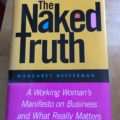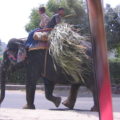In the days just after the grand jury’s failure in Ferguson, some of my friends were unpleasantly surprised to see racism popping up from unexpected people amongst their Facebook acquaintances. At first I thought I was spared, but then I noticed that I wasn’t. I got angry.
Hmm, so I am seeing some racism on my Facebook timeline, and it’s coming from … Indians. Really? REALLY? My Indian friends, many of whom are people I respect and grew up with in India, a country I love deeply: you should know better. You should know it in your bones. Does it take a white foreigner to remind you of your own millennia of history, and show you how something very similar applies in the US?
You know what a caste system is, you know what it means, you know that it’s wrong. Your revered Gandhi-ji taught you many decades ago, as have others before and since. It’s something that India is still struggling to overcome, and I trust that you are on the right side of history in that struggle. Would you dare to say out loud in India that “Dalits should stop with the victim mentality” ?
What America has is a caste system. Here, the Untouchables are dark-skinned, just as they are in India. Here, as in India, lighter-skinned people conquered darker-skinned people (the Aryans invaded the Dravidians; European/American whites captured, enslaved, and transported Africans), and then came up with “justifications” for this behavior.
In India, the religious justification for Untouchability is that they must have sinned in some previous life, sins for which they must pay in this life by being kept in near-slavery in “unclean” occupations. Generation after generation. (Christianity has been bent in this way as well: the “mark of Cain” has been thought to mean dark skin. In Mormonism, this is doctrine.)
In the US, the assumption is that black people are genetically or socially flawed – they somehow “deserve” what is done to them. Generation after generation.
Neither of these points of view is often stated out loud – most people realize that to say such things is too obviously racist. But these assumptions underlie much of what is said. In some of the statements I’ve seen on FB recently, there is a clear undercurrent of “They deserve it.” “They’re doing it to themselves.”
No, they do not and they are not, and if you think so, you need to do some homework. At least in India laws have been passed to try to rectify the historic oppression of the lower castes. The US isn’t doing so well in this regard (read The Case for Reparations).
So, my Facebook friends, on this American holiday which is about giving thanks, go and read and learn why you should be grateful that you were not born into the low end of the American caste system. Stop blaming people for being victims of a system that they did not create, and start thinking about what you can do to help make it better. Your first step is to start listening.








